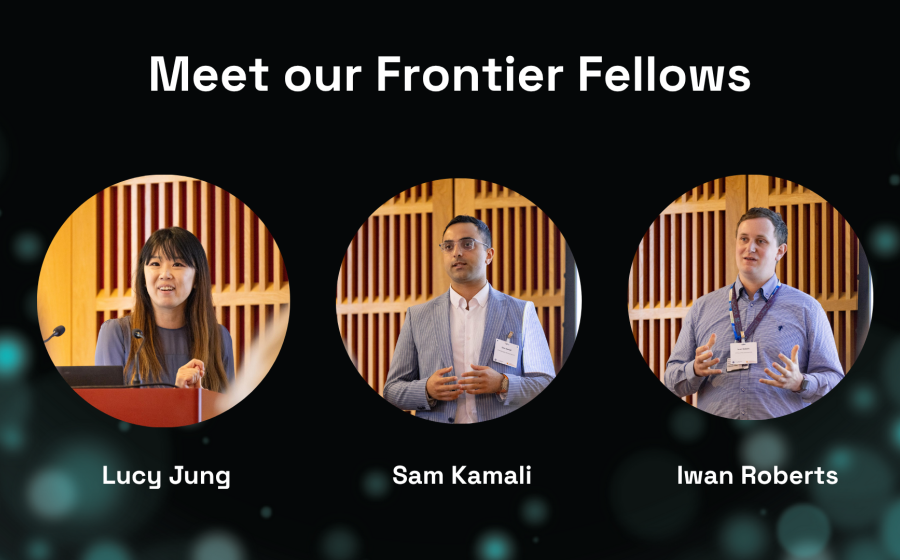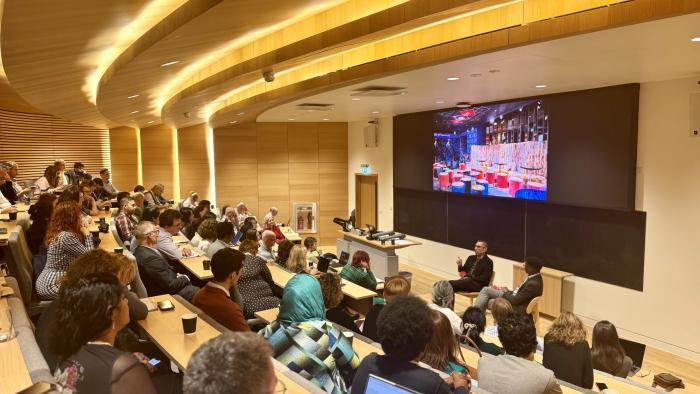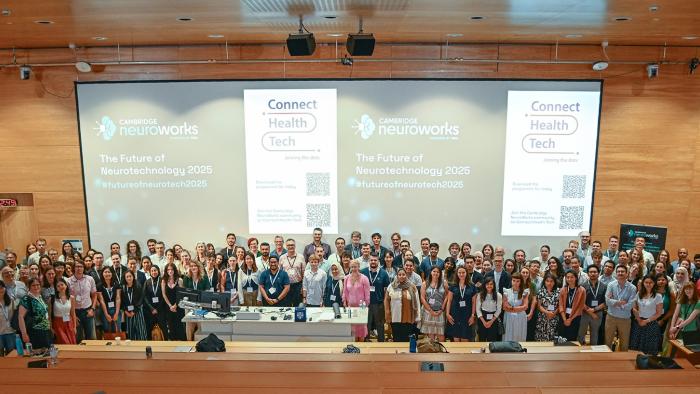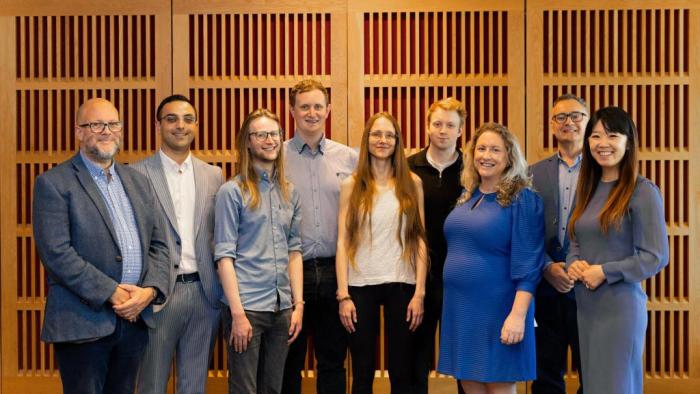Meet Frontier Fellows at Cambridge NeuroWorks - Cohort 1

Meet Lucy Jung – Frontier Fellow at Cambridge NeuroWorks
Lucy Jung is a design engineer, inventor, and founder with a passion for developing medical technologies with empathy, accessibility, and real-world impact at its core. Her journey began with a drive to improve quality of life for people living with long-term conditions. After completing degrees in Industrial Design in Korea and Innovation Design Engineering in London, she turned her focus to neuromodulation, creating solutions that interface directly to the body’s nervous system.
As a Frontier Fellow, Lucy is developing her innovative technology to build the next generation of neuromodulation tools that support people experiencing anxiety, trauma, sleep issues, and stress-related conditions. Right now, there are limited options designed specifically to regulate the autonomic nervous system in everyday life. Lucy is changing that. Her work with LYEONS takes a patient-first approach, using subtle, science-backed stimulation to support self-regulation and wellbeing. It builds on her success at Charco Neurotech, where she helped thousands of people with Parkinson’s see real improvements in mobility and daily function. Now, she’s asking how this technology could support mental and emotional resilience too.
“Design isn't just about making something new. It's about deeply understanding what people need, what helps, and what gets in the way. This fellowship gives me space to explore those questions and build something truly useful from the ground up.”
Meet Sam Kamali – Frontier Fellow at Cambridge NeuroWorks
Sam’s journey into neurotechnology started with a very personal event. When his cousin had a stroke at just 11 years old, the long wait for a treatment that never came left a deep impression. It made Sam question the limits of current medical technology and sparked a lasting curiosity about the brain.
That curiosity grew into a passion for understanding cerebral blood flow, eventually leading to his undergraduate thesis: "Astrocytes are more important than neurons." Through this, he explored how neuroanatomy supports human development and behaviour. Later, while helping his cousin with rehabilitation, the two of them imagined a new kind of medical device - one that could work with the body’s own signals to support recovery from paralysis.
As a Frontier Fellow, Sam is developing his innovative technology to create Myonerv: a wearable electrical biofeedback stimulator that monitors and treats paralysis in stroke patients.
Right now, there’s no easy-to-use device that connects muscle intent with therapeutic stimulation in real time. Sam wants to change that. His approach brings together advanced conductive polymers, custom circuitry, and real-world experience of stroke rehabilitation. He’s asking what could happen if stroke recovery was made more immediate, more responsive, and more human.
“Myonerv isn't just a device, but a way out of the darkness for people with paralysis. The existing cobweb of complicated equipment is trapping patients within their disabilities, and separating caregivers from providing more help. The Frontier Fellowship provides me an unprecedented platform where I can design, build and test Myonerv prototypes. So we can shine a light on the path that brings patient control back in their hands”
Meet Iwan Roberts – Frontier Fellow at Cambridge NeuroWorks
Iwan Roberts blends physics, tissue engineering, and neurotechnology to create tools that can move from the lab into real clinical settings. He draws on his experience as a Postdoctoral Fellow in Clinical Neurosciences at the University of Cambridge and his work as co-founder at COSA LTD. Now, he’s turning his attention to a growing and often overlooked challenge: falls.
Falls are one of the leading healthcare burdens facing the NHS, particularly among older adults and people with neurological or balance-related conditions. More than 30% of over-65s experience a fall each year, often leading to long-term decline and additional health complications. Yet clinical assessments of balance and movement are still infrequent and often based on subjective tests. Iwan wants to change that.
As a Frontier Fellow, Iwan is developing his innovative technology to translate earable devices into clinical tools for monitoring balance, falls risk, and neurological health. His work focuses on a novel on-ear wearable that combines multiple sensing technologies including heart rate, brain activity, eye movement, and motion tracking into a single device. By picking up important changes in real time, the device could help people get the right support sooner and make it easier to live well with long-term movement or balance challenges.
“I’m passionate designing clinically useful tools that are truly practical for people to wear, use, and benefit from in their everyday lives. The Frontier Fellowship is great opportunity to take that vision further and turn advanced sensing into accessible care.”
Stay up to date with Fellow updates, discussions and upcoming events on Connect: Health Tech.



